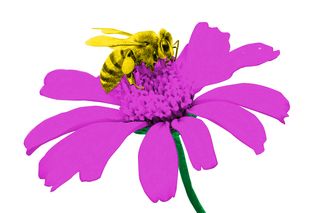
Dwindling Insect Population May Trigger ‘Plant Wars,’ Research Shows
With a limited pool of pollinators to choose from, plant species may begin competing against each other to reproduce.

For a while now, environment scientists and wildlife experts have warned us about dwindling insect populations. A review published in April 2019 in the journal Biological Conservation had warned about drastic falls in their numbers, claiming that up to 40% of insect species in the world were on the verge of extinction. Experts have noted that insect extinctions at such a massive rate will be disastrous for the ecosystem. It would leave numerous birds, reptiles, amphibians, and even mammals out of their primary diets, eventually resulting in them starving to their deaths.
But it’s not just animals: declining insect numbers may also spell doom for plant populations. Insects play a vital role in pollination — so much so that plants go to great extents to attract bugs, bees, and flies that are necessary for their reproduction. Apart from offering nectar, plants also lure insects by producing remarkably strong smells, and some may even disguise themselves as potential mates for their pollinating population. All of this indicates just how vital a position insects occupy in the reproductive process of plants. A new paper now suggests that as insect populations continue to fall, inter-species “violence” among plants could be a possible consequence of the drop.
Published in Nature, the research reports the findings of field experiments in Switzerland conducted by biologists Christopher Johnson, Proneet Dutt, and Johnathan M. Levine. The scientists carried out their tests on 102 plots of 2.25 square meters, consisting of five floral plant species — field mustard, corn gromwell, common poppy, corn flower, and wild fennel — native to Switzerland. In some of these plots, the researchers controlled pollination by hand. In some other plots, the plants were made to rely on normal environmental levels of pollination. Some others were enclosed, and half of them were exposed to only one of the pollinator species. The rest of the enclosed plots were exposed to an environment that would stimulate pollinator decline.
Related on The Swaddle:
The World is Losing 1‑2% of Its Insects Every Year, Scientists Warn
The scientists found that in 90% of those enclosures, the competition for pollinators destabilized inter-plant species interactions, and subsequently reduced the proportion of pairs of plants expected to coexist. Researchers noticed that niche differences — the difference in processes among species in how they use a habitat that would allow them to coexist — was disbalanced and destabilized in the absence of enough pollinators.
In other words, the ability to coexist with other plant species diminished among all those included in the experiment. This indicates that when faced with a scarcity of pollinators, every plant fights solely for itself, and will compete with other plant species to vie for attention from the limited number of insects roving around the ecosystem. Moreover, as plants begin to compete with each other for attention from only a handful of insects, those species with lesser pollinator visits will also face a decline in their population.
The scientists did note that since the study was done on a small scale and in a limited time-frame, there remains a possibility of plant species arriving at a new coexistence balance in the future, over a longer frame of time. However, they emphasized that findings from the experiments remained concerning nonetheless.
This study serves as a timely reminder of the urgent need to address the growing decline in insect populations around the world. Humans may not think of insects as more than a menace or nuisance, but they clearly fill important shoes in the ecosystem, and it is important to save them from impending extinction. A mass insect extinction will trigger a chain of other events among the biodiversity of the world, including driving even plants to violence with each other, as the present study shows. Human activities such as farming practices (including the use of pesticides and other toxic chemicals), are one of the major drivers of insect decline. It then becomes our responsibility towards the ecosystem to enact steps to mitigate this.
Amlan Sarkar is a staff writer at TheSwaddle. He writes about the intersection between pop culture and politics. You can reach him on Instagram @amlansarkr.
Related


Why We Find Pessimists to be More Intelligent
